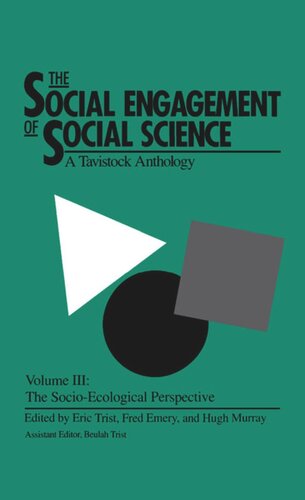

Most ebook files are in PDF format, so you can easily read them using various software such as Foxit Reader or directly on the Google Chrome browser.
Some ebook files are released by publishers in other formats such as .awz, .mobi, .epub, .fb2, etc. You may need to install specific software to read these formats on mobile/PC, such as Calibre.
Please read the tutorial at this link: https://ebookbell.com/faq
We offer FREE conversion to the popular formats you request; however, this may take some time. Therefore, right after payment, please email us, and we will try to provide the service as quickly as possible.
For some exceptional file formats or broken links (if any), please refrain from opening any disputes. Instead, email us first, and we will try to assist within a maximum of 6 hours.
EbookBell Team

4.8
104 reviewsWorld War II brought together a group of psychiatrists and clinical and social psychologists in the British Army who developed a number of radical, action-oriented organizational innovations in social psychiatry. They became known as the "Tavistock Group," since the core members had been at the pre-war Tavistock Clinic. At the post-war Tavistock Institute of Human Relations, they developed a pioneering mode of relating theory and practice, called in these volumes "The Social Engagement of Social Science." Previous volumes presented two of three interdependent perspectives: the socio-psychological (Volume I, 1990) and the socio-technical (Volume II, 1993). The latest volume, on the socio-ecological perspective, completes the set.
The socio-ecological perspective is concerned with the coevolution of systems and their environments. It considers the broader environment which shapes not only the task environments of socio-technical organizations but the institutional and cultural environment that confronts the individual.
Volume III focuses on nonhierarchical forms of organization facilitating inter-organizational relations in complex and rapidly changing environments. This perspective provides a guide to institution building for the future.